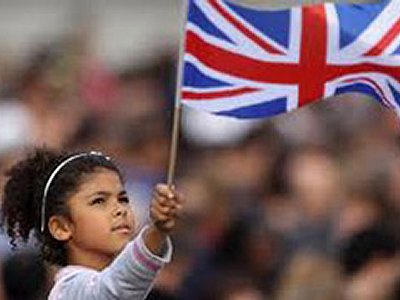
WHAT ARE BRITISH VALUES?
Is there a British identity and if so, what has shaped the values and institutions that form it?
In the wake of the Queen’s Diamond Jubilee, debate about the essence of British identity and values has surfaced again. In Prospect, June 2012, several opinion formers were asked what they believe is characteristic about being British and some common themes emerged. The British do not take themselves too seriously and this is achieved by keeping the joke at the heart of our lives. This ensures people do not become too pompous and self-regarding; it also helps us to keep life in perspective.
Britons, it is argued, are rooted in a stout democratic tradition and are tolerant of outside influences. While recent trends in immigration have raised questions about the sustainability of public services and social housing under current models, there is believed to be a warmth and acceptance about the British which is welcoming of foreigners. The oft repeated claim that Britain’s national dish is chicken tikka masala is suggestive of this.
Institutions help to define us and the NHS, the BBC and the Beatles topped this list. One correspondent, curiously, said that the Church of England was one of the best things and on of the worst things about British society, proving, as usual, that Anglicans can have it both ways. The British also like a nice cup of tea and talking about the weather.
I expect we could add to this list with just a little thought. Test Match Special and Match of the Day say much about the whimsy and the seriousness with which we approach sport. One function of this is the preference we have for the underdog and a cheery acceptance that they are usually British (and playing at Wimbledon). Although sentimental, this emphasis is more broadly seen in the concern for those who do not get a good deal in life. Fairness matters to the British. Jumping a queue is frowned upon in ways that some other nations would be amazed by, yet this small courtesy says much about our concern for the vulnerable.
As always, there is a flip side to self-congratulation. The very things we celebrate cast dark shadows. While we claim not to take ourselves too seriously, the adulation of celebrity – essentially a recent phenomenon – continues unabated. Every child born since the turn of the century will assume this is part of the natural order of things and be tempted to aspire to the goal of becoming famous for the sake of it as an unremarkable feature of growing up.
We speak loosely of our democratic traditions, but many of us would struggle to describe them beyond the ability to vote governments in and out, which increasing numbers of us are too lazy even to do. As we swap citizenship for ownership as a mark of identity, these traditions are being threatened. We may have a robust desire for liberty, but the constant appeal to rights is becoming a perversion of this cherished ideal, where the common good is subordinated to individual expression. The opinion formers who commented in Prospect also felt that the British were too cynical and weary, too accepting of inequality and still absorbed by class distinctions; meanwhile the media can be nasty and spiteful.
Debate over British values is likely to be sustained in a digital era and is an interesting topic of discussion. In many ways we have not given it the attention it deserves. Part of the conversation should show some honesty about the role of Christianity in shaping the values and institutions we claim to cherish. These do not emerge in a vacuum and if we are to re-cast them in succeeding generations, an assured sense of their origins is required. Some people rebut the suggestion that Christianity has either played a fundamental role in the past or that it should do in the future in moulding these values. Thankfully, vigorous debate is also part of our heritage. Christians should ready for this fight – provided it is allied to the self-effacing humour which allegedly makes Britons who they are.
POPULAR ARTICLES

Obama's Covert Wars
The use of drones is going to change warfare out of all recognition in the next decades.

Through A Glass Starkly
Images of traumatic incidents caught on mobile phone can be put to remarkable effect.

What Are British Values?
Is there a British identity and if so, what has shaped the values and institutions that form it?


